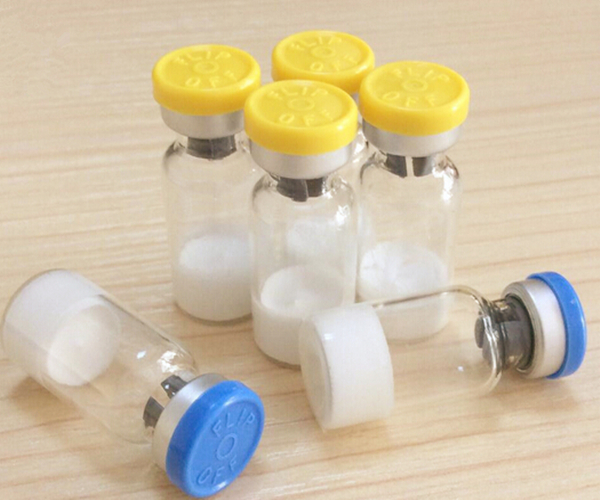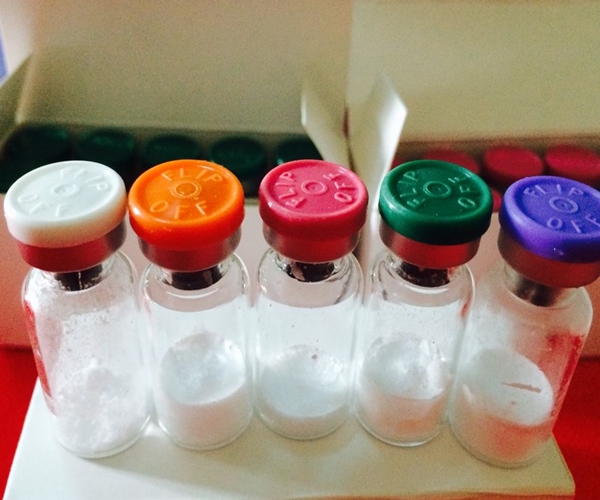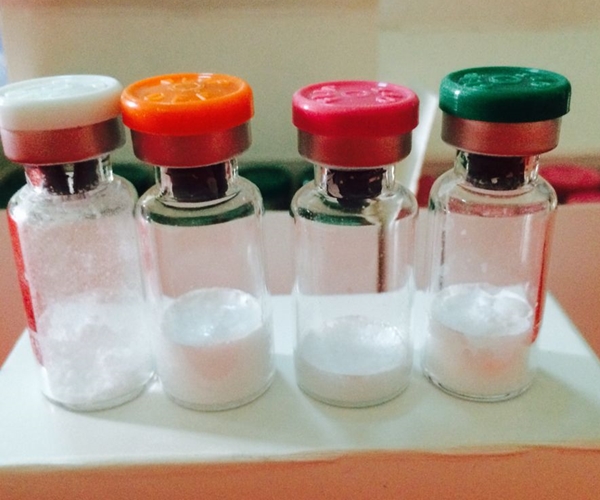Epitalon CAS:307297-39-8
Epitalon Peptide Introduction: Epitalon (also called epithalon or epithalone) is a synthetically-derived tetrapeptide. As epitalon has been shown to increase the production of telomerase which in turn strengthens and lengthens telomeres, this means that epitalon can play a vital role in decreasing the aging process and thus extending human longevity. Epitalon has been shown to inhibit the growth of cancerous …
Thyrotropin TRH CAS:24305-27-9
Previous work from our laboratory prompted us to study the effects of short-term, acute administration of TRH or its chronic oral administration, on organs, tissues and aging-related metabolic and hormonal markers, in order to acquire more knowledge on effects, dosage and timing of administration according to its circadian cyclicity. In addition, we wanted to verify its anti-aging effects on two …
GDF-8 Peptide
GDF-8 (propeptide-Fc) is a myostatin inhibitor of muscle growth and development process. Myostatin is present in the healing process of muscles and its nature is to inhibit myogenesis (the process of formation of muscular tissue). Scientists have been studying a new method to enhance the repair and regeneration of both muscle and bone in certain injuries through a new recombinant …
ACE 031
ACE-031 is an investigational protein therapeutic that builds muscle and increases strength by inhibiting molecules that bind to and signal through a cell surface receptor called Activin Receptor Type IIB (ActRIIB). ACE-031 is a recombinant fusion protein that is produced by joining a portion of the human ActRIIB receptor to a portion of a human antibody. ACE-031 is an investigational …
Adipotide
Adipotide is a new drug that is showing some promise in the area of obesity research. This drug was initially created as a cancer treatment designed to starve cancer cells of a blood supply so they would stop growing. The effects of Adipotide have shown that the drug actually starves fat cells of blood forcing them to die and be …
Eptifibatide CAS:188627-80-7
Eptifibatide (Integrilin, Millennium Pharmaceuticals, also co-promoted by Schering-Plough/Essex), is an antiplatelet drug of the glycoprotein IIb/IIIa inhibitor class.[1] Eptifibatide is a cyclic heptapeptide derived from a protein found in the venom of the southeastern pygmy rattlesnake (Sistrurus miliarius barbouri). It belongs to the class of the so-called arginin-glycin-aspartat-mimetics and reversibly binds to platelets. Eptifibatide has a short half-life. The drug …















